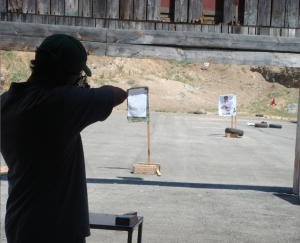Despite the military dictatorship in Argentina, Sebastian left the repressive environment because he wanted to help. He tells me, “I left in the middle of my college studies, I volunteered to a war in Israel to work in place of reserve soldiers who had to go to the front and there were no men left in the fields, so I volunteered to work in the fields during that period.” I ask him about his jobs in the fields. They were not easy. As a volunteer, he worked long hours in exchange for housing and food. “I worked in a shoe factory for many days. I also worked in the orange and grapefruit plantations where we collected the fruit. They had… fish pools… I also worked in taking the fish out of the pool… We were… wearing…full body boots, and we were… in the mud pulling nets to bring out the fish. It was the hardest job I ever did in my life.” At the time, Sebastian went to Israel because of the Yom Kippur War (also known as Ramadan War or October War). The war began on October 6, 1973. A group of Arab states led by Egypt and Syria launched an attack on Israel on Yom Kippur which is a holy day in the country. The attack took the country by surprise because it was a day when the military forces were participating in religious observances. The war ended with a ceasefire organized by the United Nations on October 25. It was during this tumultuous time in Israel that Sebastian traveled there. He wanted to lend a hand by temporarily occupying the jobs of the men serving in the war. Sebastian traveled with a group of people he knew from Argentina to Israel in January of 1974. He had wanted to go earlier, but he was still completing his compulsory military service in Argentina at the time. When Sebastian arrived, the soldiers had not yet returned from the fronts, so Sebastian and the other volunteers played an important role by participating in the workforce.
Sebastian then continued his college education in Israel at Technion Israel Institute of Technology. In his last years at school, he served as a T.A. He studied engineering. He spoke very limited Hebrew before moving to Israel. As a volunteer, he began to gain a stronger grasp on the language. Sebastian tells me that almost everyone in Israel spoke English, so the Israelites would often speak to the volunteers in Hebrew and then translate into English. Sebastian said that the real learning occurred at the homes of Israelites. People would invite the volunteers for tea and cookies after work, and it was in that environment that Sebastian really began to communicate in Hebrew. After he served as a volunteer, he took an accelerated course in the language. By the time Sebastian started university, he was significantly more proficient in Hebrew than when he arrived. However, Sebastian still found the language barrier challenging. He explains to me that luckily engineering has many universal concepts that do not involve knowledge of the language. Sebastian used the English version of texts for his class. He had to work very hard in order to overcome the challenges that came with learning already difficult material in a language that was not his first or even his second language. Sebastian graduated from Technion with a b.s. in engineering. He left Israel after three years. He went back to Argentina for his sister’s wedding and traveled around for a little while seeing the world. Sebastian tells me, “All of that took about a year between the time when I left Israel and came to the United States.”


